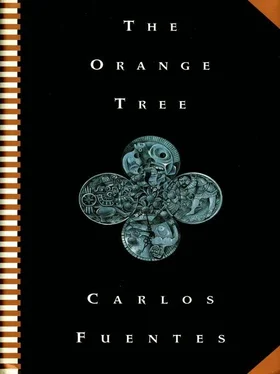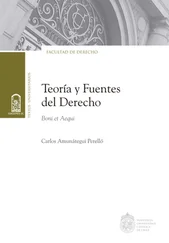Hernán Cortés’s words of peace, translated by me into the vocabulary of war, provoked a rain of Indian arrows. Taken aback, the captain saw the sky wounded by the arrows and reacted by engaging in battle on the very banks of the river … As he disembarked, he lost a sandal in the mud, and because I recovered it for him, I was hit by an arrow in the thigh; fourteen Spaniards were wounded, thanks to me in great measure, but eighteen Indians fell dead … We slept there that night, after the victory I didn’t want, with large torches and sentinels, on the wet ground, and if my dreams were unquiet — the Indians I had induced to fight had been defeated — they were also pleasant, because I proved my power to decide peace or war thanks to my ownership of words.
Poor fool: I lived in a false paradise where, for an instant, language and power coincided with my luck, because when I joined the Spaniards in Yucatan, the former interpreter, a cross-eyed Indian named Melchorejo, whispered into my ear, as if he guessed my intentions: “They’re invincible. They speak with the animals.”
The next morning, Melchorejo disappeared, leaving his Spanish clothing hung from a silk-cotton tree which Cortés, to indicate Spanish possession, had slashed three times with his knife.
Someone saw the first interpreter flee naked in a canoe. I was left thinking about what he’d said. Everyone would say that the Spaniards were gods and that they spoke with gods. Only Melchorejo divined that their power was to speak with the horses. Was he right?
Days later, the defeated chiefs of this region delivered twenty women as slaves for the Spaniards. One of them caught my eye, not only because of her beauty but because of her arrogance: she overawed not only the other slaves but the chiefs themselves. She had what’s called a lot of presence, and her orders brooked no disagreement.
We exchanged looks, and without speaking I said to her, “Be mine, I speak your Maya tongue and love your people, I don’t know how to combat the fatality of all that’s happening, I can’t stop it, but perhaps you and I together, Indian and Spaniard, can save something if we come to an agreement and above all if we love each other a bit …
“Do you want me to teach you to speak Castilla?” I asked.
When I came near her, my blood pounded; one of those times when mere seeing provokes pleasure and excitation. It was perhaps augmented because I’d gone back to using Spanish breeches for the first time in a long time, after having worn a loose shirt and nothing underneath it, allowing the heat and the breeze to ventilate my balls freely. Now the cloth caressed me, and the leather squeezed me, and my eyes linked me to the woman I saw as my ideal partner for confronting what was to happen. I imagined that together we could change the course of events.
Her name was Malintzin, which means “Penitence.”
That same day, the Mercederian Olmedo baptized her Marina, making her the first Christian woman in New Spain.
But her people called her La Malinche, the traitor.
I spoke to her. She didn’t answer me. However, she did allow me to admire her.
“Do you want me to teach you to speak…?”
That evening in March of the year 1519, she disrobed before me in the mangrove swamp, while a simultaneous chorus of hummingbirds, dragonflies, rattlesnakes, lizards, and hairless dogs broke loose around her transfigured nakedness. In that instant, the captive Indian woman was svelte and massive, heavy and ethereal, animal and human, sane and insane. She was all that, as if she were not only inseparable from the earth that surrounded her but also its summary and symbol. And also as if she told me that what I was seeing that night I would never see again. She disrobed to deny herself to me.
I dreamed all night about her name, Marina, Malintzin, I dreamed about a son of ours, I dreamed that together she and I, Marina and Jerónimo, owners of the languages, would also be owners of the lands, an invincible couple because we understood the two voices of Mexico, the voice of men and the voice of the gods.
I imagined her rolling around in my sheets.
The next day, Cortés chose her as his concubine and his interpreter.
I was already the latter for the Spanish captain. I could not be the former.
“You speak Spanish and Maya,” she said to me in the language of Yucatan. “I speak Maya and Mexican. Teach me Spanish.”
“Let your owner teach you,” I answered in rancor.
From my tomb, I assure you, we see our rancor as the most sterile part of our lives. Rancor (and envy, which is sorrow over someone else’s well-being) closely follows resentment as a sorrow that wounds the person suffering it more deeply than it does the person who provokes it. Jealousy doesn’t do that: jealousy may be the source of exquisite agonies and incomparable excitations. Vanity doesn’t do that either: vanity is a human trait that links us to everyone else, the great equalizer of poor and rich, strong and weak. In that, it resembles cruelty, which is the best-distributed thing in the world. But rancor and envy: how was I going to triumph over those who provoked them in me, he and she, the couple of the conquest, Cortés and La Malinche, the couple she and I might have been? Poor Marina, ultimately abandoned by her conquistador, burdened with a fatherless child, stigmatized by her people with the mark of betrayal, and, nevertheless, because of all that, mother and origin of a new nation, which perhaps could only be born and grow against the charges of abandonment, illegitimacy, and betrayal …
Poor Malinche, poor rich Malinche as well, who with her man shaped history, but who with me, the poor soldier killed by buboes and not by Indians, would not have passed from the anonymity that surrounded the Indian concubines of Francisco de Barco, native of Ávila, or Juan Álvarez Chico, born in Fregenal …
Am I humiliating myself too much? Death authorizes me to say that it seems little compared to the humiliation and failure I felt then. Deprived of the desired female, I substituted the power of the tongue for her. But you’ve already seen how La Malinche took even that away from me even before the worms dined on it forever.
Cortés’s cruelty was refined. He ordered me, since she and I spoke the Indian languages, to take it upon myself to communicate to her the truths and mysteries of our holy religion. The devil has never had a more unfortunate catechist.
[2]
I mean to say that I speak Spanish. It’s time to confess that I had to relearn it, because after eight years among the Indians I almost lost it. Now with Cortés’s troops, I rediscover my own language, the one that flowed toward my lips from my Castilian mother’s breasts. And I quickly learned Mexican, so I could speak to the Aztecs. La Malinche was always one step ahead of me.
The persistent question, nevertheless, is a different one: Did I rediscover myself when I returned to the company and language of the Spaniards?
When they found me among the Indians of Yucatan, they thought I was an Indian.
This is how they saw me: dark, hair cropped short, an oar on my shoulder, wearing ancient sandals long beyond repair, an old, ruinous shirt, and a loincloth to cover my shame.
Thus they saw me then: sunburned, my long hair a tangle, my beard shaved off with arrows, my sex old and uncertain under my loincloth, my old shoes, and my lost tongue.
Cortés, as was his custom, gave precise orders to overcome any doubt or obstacle. He ordered me dressed in shirt and doublet, breeches, pointed cap, and hemp sandals, and ordered me to tell how I came to that place. I told him as simply as I could:
“I was born in Ecija. Eight years ago, fifteen men and two women, making our way from Darien to the island of Santo Domingo, got lost. Our captains fought each other over money matters, since we were carrying ten thousand gold pesos from Panama to La Española, and the ship, with no one at the helm, smashed against some reefs in Los Alacranes. My comrades and I abandoned our incompetent, unfaithful leaders, taking the lifeboat from the wrecked ship. We thought we were heading toward Cuba, but the heavy currents pushed us far from there toward this land called Yucatan.”
Читать дальше












